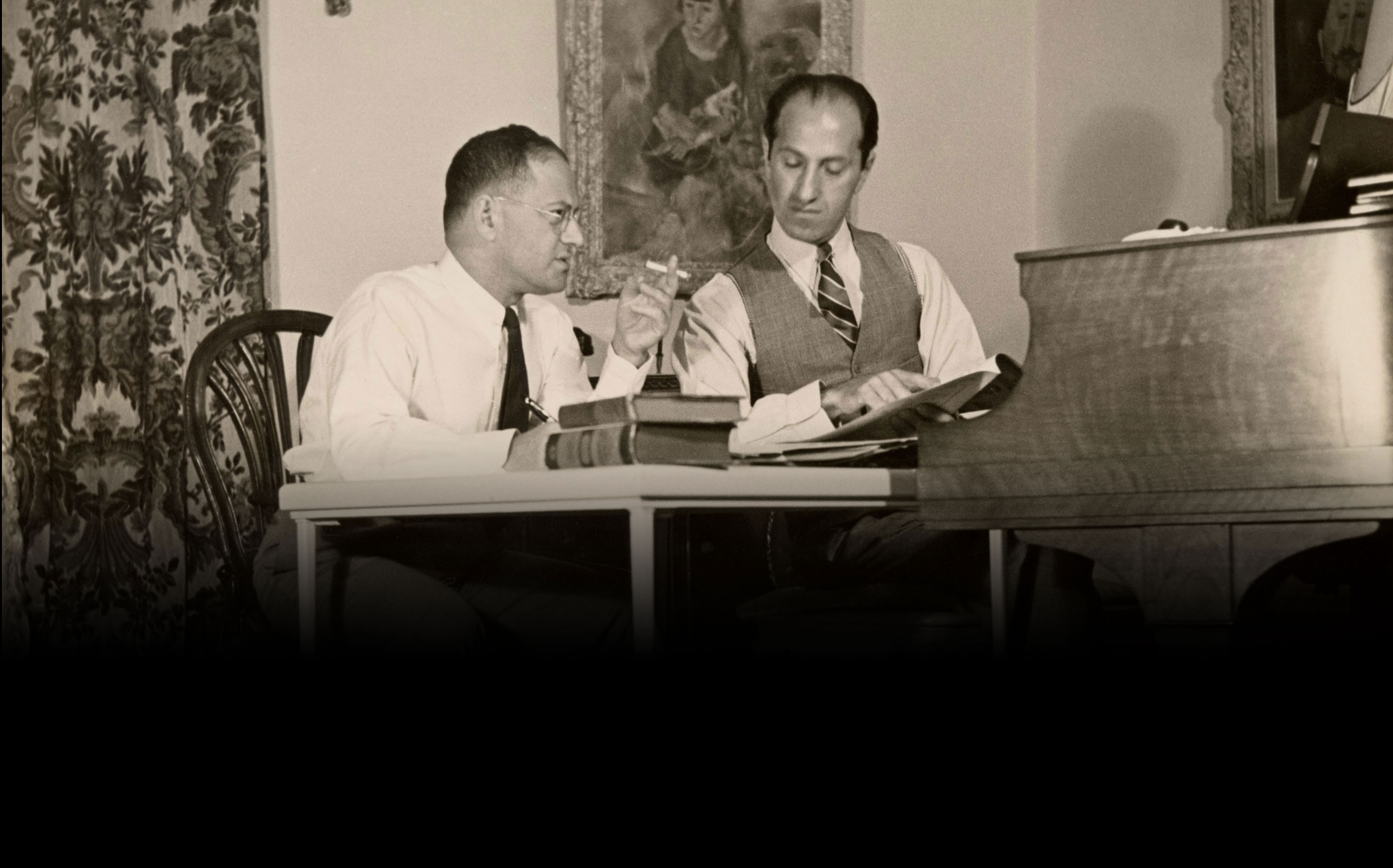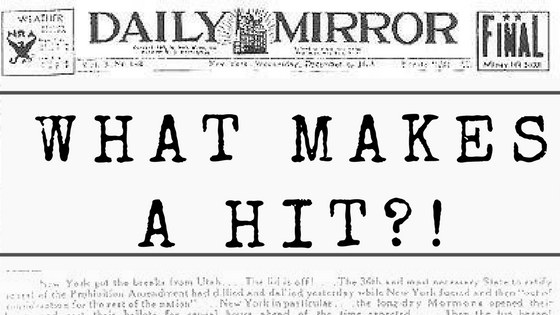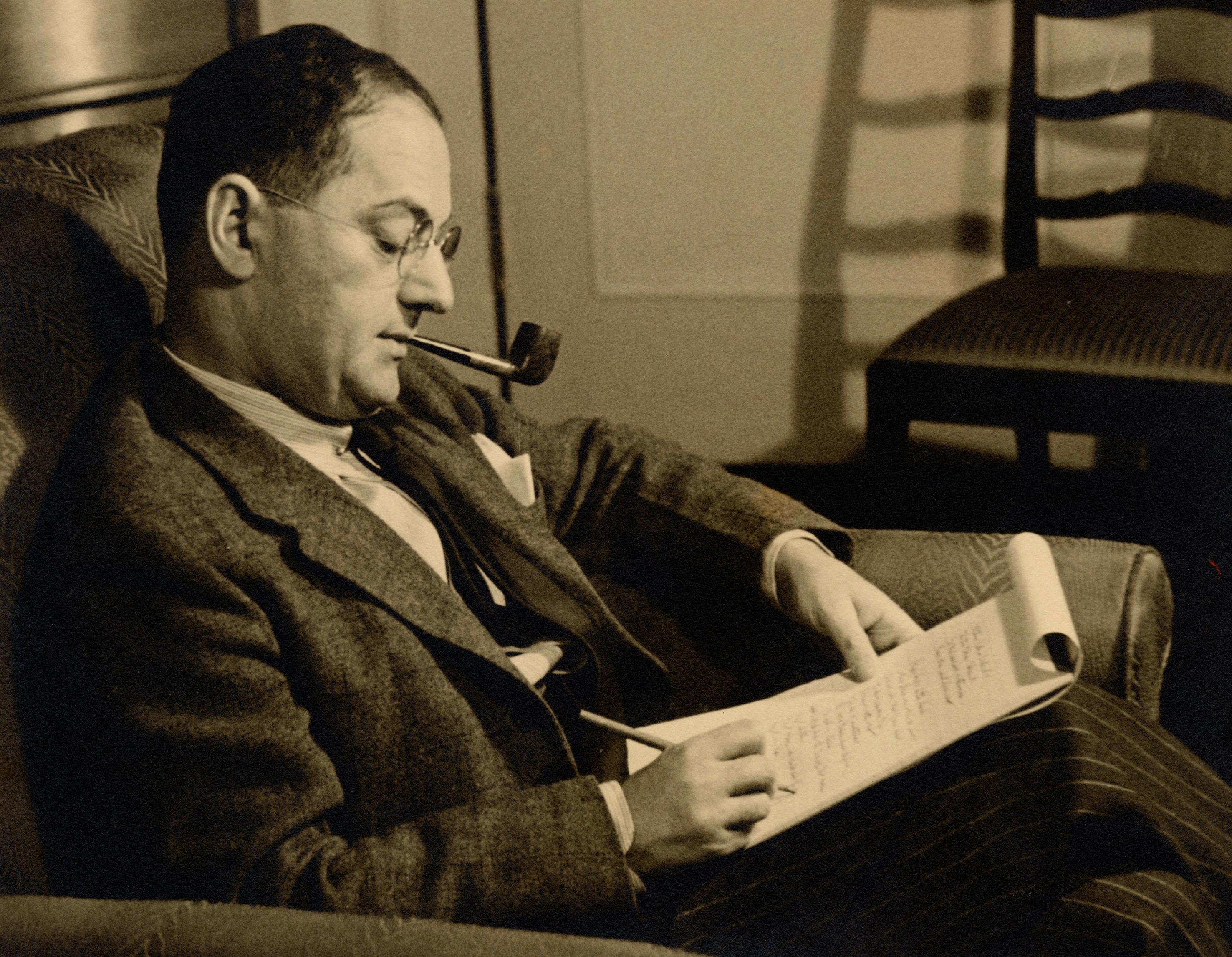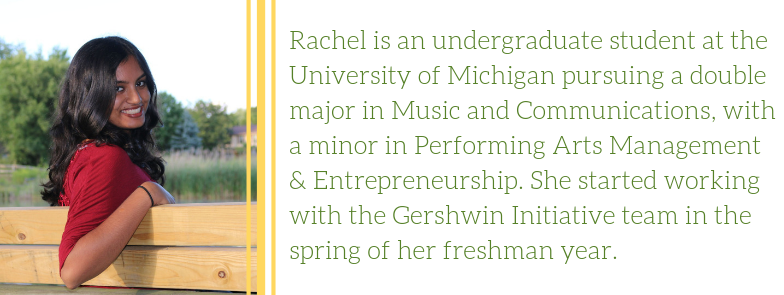I Got Lyrics: Ira’s Unique Writing Process
“I Got Rhythm,” an enduring Gershwin classic, is from the musical Girl Crazy, which premiered on October 14, 1930. Despite having some initial trouble with the text, Ira was able to write one of the most memorable lyrics in musical theater history while enhancing George’s syncopated melody.
By Rachel Fernandes
Before “I Got Rhythm” became the up-tempo song we know and love, it was a slow ballad for an unfinished Gershwin musical. When revising the song for Girl Crazy in 1930, George ultimately gave it a jazzy feeling (discussed in this earlier post) that inspired Ira to write his iconic lyrics.
I got rhythm,
I got music,
I got my man,
Who could ask for anything more?
When Ira began writing the lyrics for “I Got Rhythm,” he had a very hard time finding the right words that would allow the song to “throw its weight around,” as he phrased it. The music that George wrote was heavily syncopated and somewhat boisterous, so naturally, Ira wanted to compose lyrics that would enhance the jazzy syncopation. Ira struggled with the lyrics for three weeks, playing with random dummy rhymes:
Roly-poly
eating solely
ravioli—
Better watch your diet or bust
Even though these lyrics matched George’s rhythms, Ira bluntly explained that they gave the song a “jingly Mother goose quality.” When this didn’t work, he tried his hand at non-rhyming lines:
Just go forward;
Don’t look backward;
And you’ll soon be
Winding up ahead of the game
These got him closer to the end product since, like the final lyrics, they do not rhyme—the finished lyrics are parallel at the beginning of the line instead of the end. According to Philip Furia, Ira ultimately decided to use harsher consonants, such as “got,” and the alliteration of “music” and “my man.” The harsher consonants paired well with the speed and excitement of the music, while the alliteration made the lyrics more memorable for audiences. Ira also deliberately abandoned grammatically correct sentences for the chorus, writing “I got rhythm” instead of “I’ve got rhythm.” The former provides a punch that is enhanced by George’s accented second beat. Ira would often complain when singers carefully enunciated “I’ve got rhythm”; in Lyrics on Several Occasions, Ira explained,
I’m sticking with the more direct “I Got Rhythm” for this tune. Although “got” for some centuries has been accepted as a strengthener in “I’ve got” and “I have got”—and although “got” as the past of “get” generally means “acquired” or “achieved”—neither of these uses obtains here.
Through the sharp sound of the phrase “I got rhythm,” Ira was able to accentuate George’s syncopated melody and write some of musical theater’s most memorable lyrics.
Once the lyrics were complete, Ira faced one last hurdle: the title. For a while, he considered the phrase “Who could ask for anything more?”. The phrase is the final lyric of the chorus, and, therefore, occurs four times throughout the song. Oftentimes, a prominent line or word in a song would be used as the song’s title, as seen in the case of “Someone to Watch Over Me.” And since the lyric was used numerous times, it would make sense for the title to be “who could ask for anything more?”. Ira, however, thought the “first line of the refrain sounded more arresting and provocative,” so the phrase “I got rhythm” became the song’s title—and the rest is history!
Further Reading
Furia, Philip. Ira Gershwin: The Art of the Lyricist. New York: Oxford University Press, 1997.
Furia, Philip. Poets of Tin Pan Alley: A History of America’s Great Lyricists. New York: Oxford University Press, 1992.
Gershwin, Ira. Lyrics on Several Occasions. New York: Limelight Editions, 1959.



